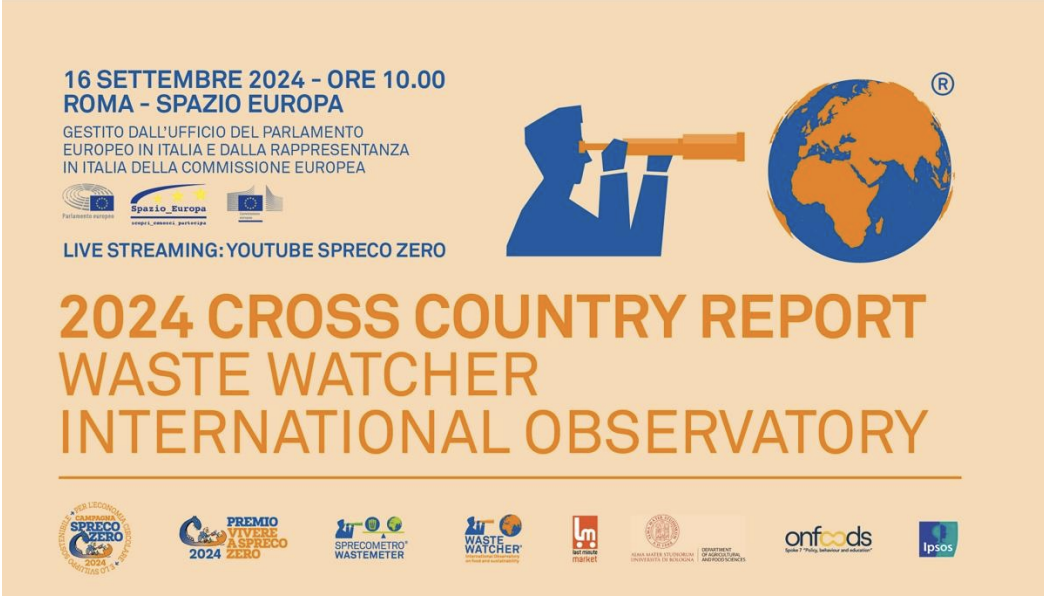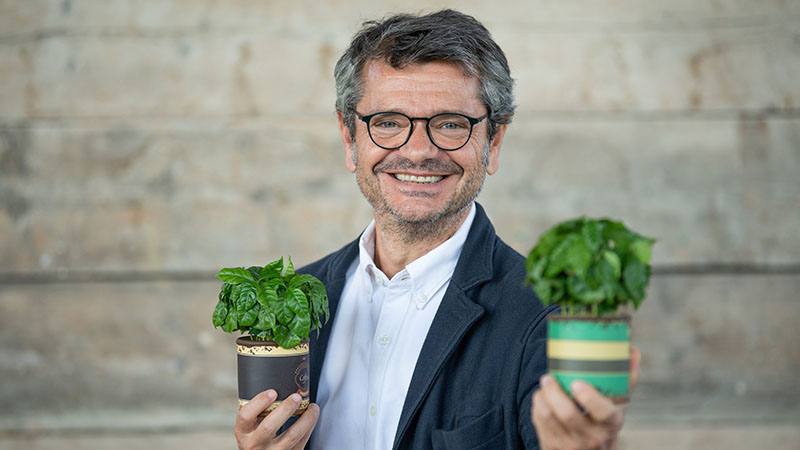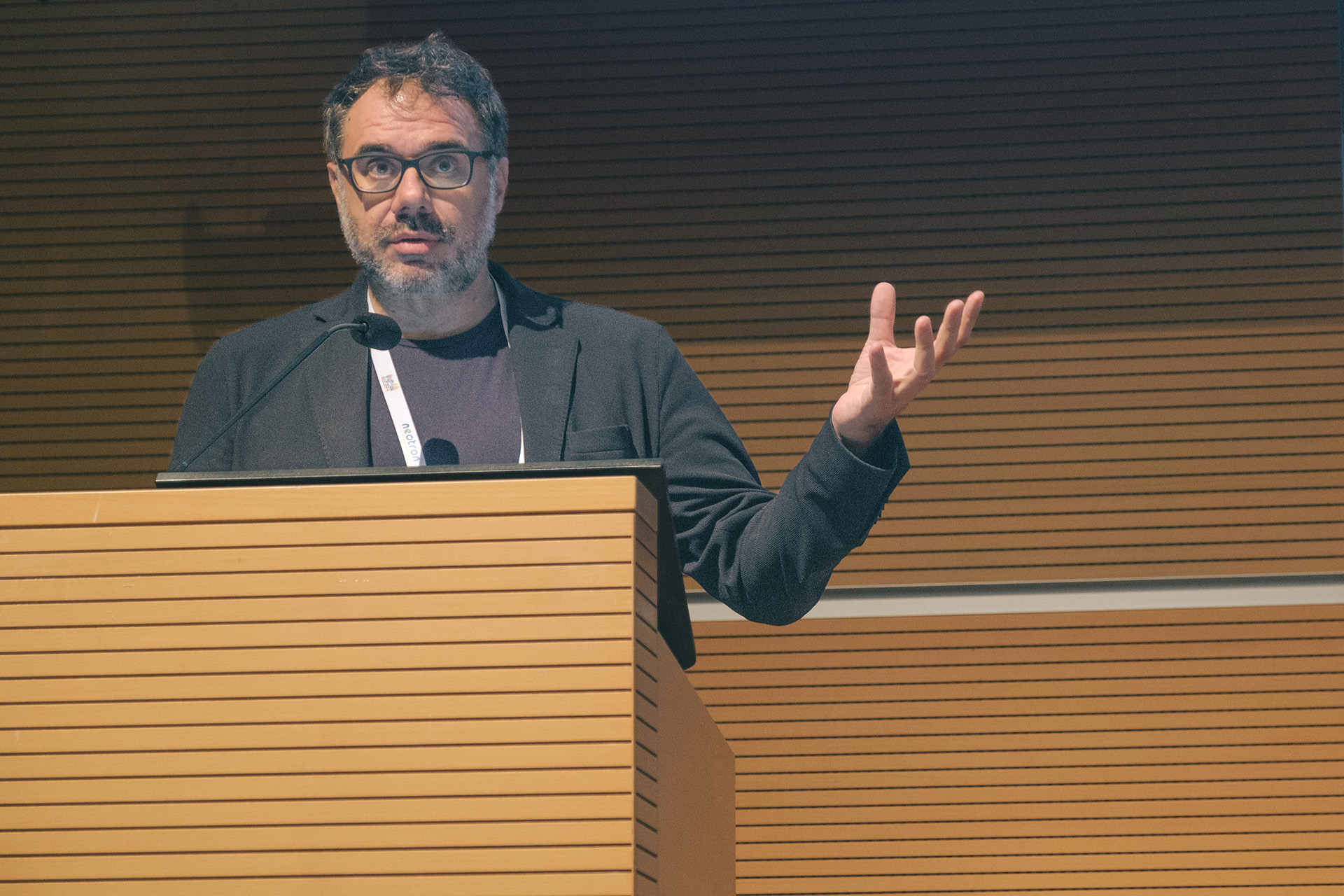Funded under the National Recovery and Resilience Plan (NRRP), Mission 4 Component 2 Investment 1.3, Theme 10.
Compared to last year, Italians are wasting nearly twice as much food. This concerning trend is highlighted by the new 2024 International Waste Watcher Report, presented today in Rome. The report is part of a broader effort made possible by the WASTEIT research project, within the framework of Spoke 7 of OnFoods.

The findings from the latest Waste Watcher reports, along with data from Eurostat, estimate that a significant portion of food waste can be attributed to consumer behavior: household waste alone accounts for between 40% and 50% of total food waste in Italy (Eurostat, 2021).
Since 2010, studies investigating the relations between household food waste and consumer behaviour have significantly increased, leading to several reviews synthesising the current knowledge. Research suggests that consumer food waste, mainly occurring at the household level, is an unintended consequence of behaviours, activities, and habits that determine the likelihood or quantity of food waste eventually produced (Quested et al., 2013).
The data of Waste Watcher report for 2024 is even more striking than the previous year. According to the new Waste Watcher report, food waste in Italy has risen by 45.6%. This means that each week, a staggering 683.3 grams of food per capita are thrown away, compared to 469.4 grams recorded in August 2023. The top five most wasted foods include fresh fruit, vegetables, fresh bread, salads, and onions/garlic/tubers—key staples of the Mediterranean diet.
“Why, despite the crisis that continues to bite, do we throw away so much food that is still good to eat? Several explanations emerge from the report, which we can summarize as follows“ - comments Andrea Segrè, University of Bologna, Scientific Director of Waste Watcher Observaotry - “while the slowdown in the inflationary drive has led to a relative increase in food consumption, relative because we are still carrying last year's double-digit inflation, demand influenced by low incomes and still high prices has concentrated on foodstuffs of lower range and often lower quality.”

Contributing to the significant increase in household food waste, aside from persistent bad habits—which remain the primary cause—is also the quality of fresh food purchased. Indeed, 42% of respondents attribute their household waste to the fact that fruits and vegetables stored in the refrigerator spoil quickly after being brought home. Additionally, 37% say they discard food because the products sold are already old.
At the root of the problem, however, seems to be a declining inclination to plan weekly meals, which results in poor management of grocery shopping and leftovers. More than a third of Italians (37%) admit to forgetting food in the fridge and pantry, allowing it to spoil, and only 23% are willing to plan their weekly meals. Additionally, 75% are either unwilling or unable to creatively repurpose leftovers to avoid throwing them away.
As a result of these findings, increasing attention is being directed toward the consumption phase, now regarded as a critical behavioral issue influenced by multiple, often competing, factors.
"The findings of the Waste Watcher International Observatory," comments Matteo Vittuari, University of Bologna, Coordinator of the International WW Report and Spoke 7 of OnFoods, "suggest that the most common individual initiatives focus on motivational aspects, driven by increased awareness, and organizational strategies, such as greater attention to planning purchases, managing fresh products, and consuming food nearing its expiration date. Even countries that have traditionally implemented highly structured information campaigns, like the United Kingdom, continue to invest in promoting basic practices such as making a shopping list."

This blog post is related to
Policy, behaviour and education
Smarter behaviors for healthier diets
Observatory waste watcher - Italy
Principal investigators
Referred to
Spoke 07

